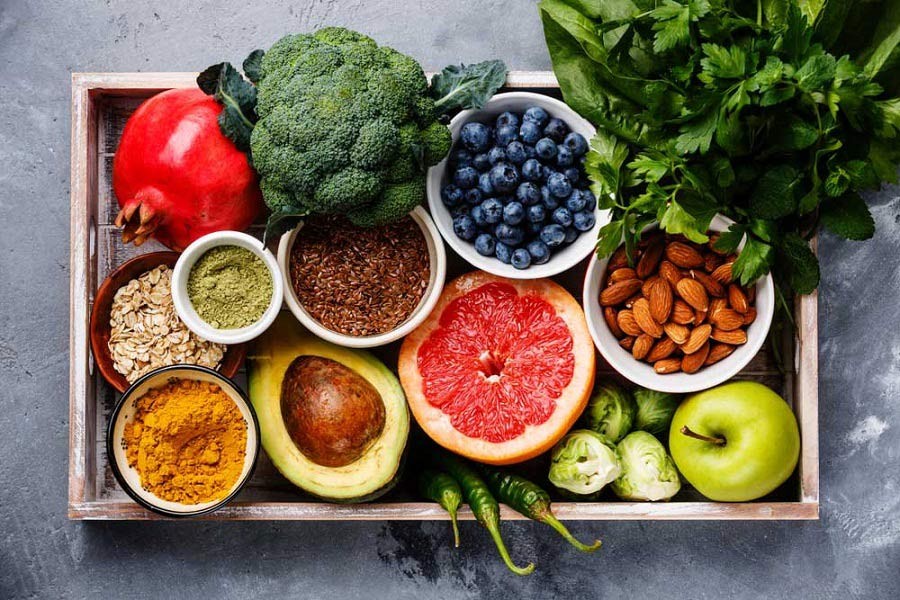
Published :
Updated :

Maintaining oral health requires a balanced diet consisting of a variety of food elements. A lack of certain vitamins and minerals can seriously impair the integrity of our teeth, so foods should be chosen wisely.
Our diet must include foods rich in calcium and phosphorus to strengthen teeth and bones, vitamin C for gum health as well as vitamin D, folic acid and other minerals.
One of the most important parts of a balanced diet is drinking an adequate amount of water every day. This helps to cleanse the food particles and harmful bacteria sticking to the gums and teeth.
Also, water rich in fluoride offers protection against cavities. That is why most countries of the world add this mineral to the water.
Whole grains, e.g. brown rice, oatmeal, etc. provide complex carbohydrates that may prevent the colonisation of bacteria in our mouth. These foods are also good sources of nutrients that our teeth need.
Apples or other fibrous fruits can increase salivation, thus neutralising harmful acids left in the mouth. Crunchy vegetables, like celery, and carrots require chewing a lot which can clean the oral cavity. Spinach, kale, lettuce or other green leafy vegetables are important sources of calcium, folic acid and other minerals required for teeth.
Nuts, like almond, and cashew nuts are packed with calcium and phosphorus. Peanuts have a lot of vitamin D. All these are necessary for our oral health.
Don’t forget proteins. Beef and poultry are good sources. Eggs, Salmon or other fatty fish, and tofu contain phosphorus which can reinforce the enamel of the tooth.
Dairy is also a good item to add, especially low-fat or fat-free products. Cheese, yoghurt and milk are often considered the best options. Cheese is low in sugar and high in calcium and phosphate. It also has a substance called casein which fortifies our tooth enamel.
Milk is crucial for healthy teeth. Yoghurts are good too, especially the ones loaded with calcium and probiotics. They can help prevent tooth decay, gingivitis and bad breath.
The tissue in the teeth requires vitamin C for integrity. As such fruits and vegetables rich in vitamin C, e.g. lemon, apples, strawberries, tomatoes, pineapples, broccoli, and cucumbers should constitute a good portion of everyday diet.
What about tea or coffee? Green and black teas have something known as polyphenols. These are antioxidants, so they can slow down or prevent damage to the teeth.
A general note of caution, people may have allergies to certain foods. So they should remove those from the diet and consult with their physician/dietician about replacements.
While including these items in the diet list is important, the order of the foods is also crucial. According to Dr Wu from the University of Illinois College of Dentistry acid neutralising foods, such as apples, unsweetened tea, milk, and cheese should be taken after a sweet meal.
Snacking frequently is harmful to the teeth because it can increase the secretion of acid in the mouth. So, this should be limited and confined to healthy items like a piece of fruit or cheese. After snacks, either brushing the teeth or rinsing the mouth with water is suggested.
To protect our teeth, there are certain things we need to avoid or restrict. Smoking is something we should all refrain from. Sugary foods need to be minimised. Brushing at least twice daily, and flossing regularly are good oral hygiene practises.
Visiting a dentist regularly is not something we look for and often try to postpone to the last possible minute which is not ideal. We should keep in touch with the dentist and have our teeth checked regularly.


 For all latest news, follow The Financial Express Google News channel.
For all latest news, follow The Financial Express Google News channel.